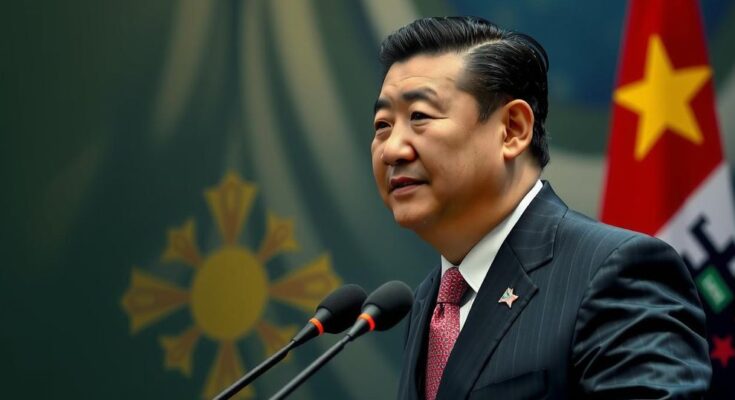The Apec 2023 summit in Peru concluded with President Xi Jinping emphasizing the need to remove trade barriers while US President Joe Biden faced challenges amid a political transition. The gathering highlighted cooperation and the need for dialogue in light of global economic uncertainties, particularly regarding US-China relations and the impact of the incoming Trump administration on trade policies.
The Asia-Pacific Economic Cooperation (Apec) forum concluded in Lima, Peru, highlighting key global leaders, particularly Chinese President Xi Jinping, who advocated for the abolition of trade barriers. The summit, attended by twenty-one leaders, including US President Joe Biden, was marked by a notable sense of unity amidst concerns regarding future trade relations, especially with Donald Trump set to take over US leadership. The leaders participated in informal discussions that scarcely moved beyond general consensuses, raising questions about the forum’s effectiveness in addressing pressing trade issues. President Xi Jinping’s prominence at the summit was evident as he occupied the central position during the family photo, while underscoring China’s commitment to globalization and challenging protectionist measures. His address, delivered by a minister, emphasized the necessity for Apec members to dismantle barriers impeding trade flow and denounced tariffs as regressive. Concurrently, Mr. Biden’s timing for the traditional family photograph was seen as a metaphor for his leadership position, raising concerns regarding the United States’ participation in global trade under the impending Trump administration. The leaders donned Peruvian wool scarves, a customary gesture during Apec gatherings. As the summit wrapped up, Mr. Biden focused on strengthening alliances with South Korea and Japan in light of the precarious international environment shaped by North Korea and Russia’s cooperation, while also acknowledging the challenging landscape of US-China relations moving forward. In a meeting with President Xi, Mr. Biden expressed the importance of continued dialogue to avert conflicts and maintain stable competition between their nations. Thus, while Apec 2023 concluded, it left behind an atmosphere of uncertainty regarding future trade policies amidst shifting political landscapes, primarily instigated by the transition to a new US presidency.
The Asia-Pacific Economic Cooperation (Apec) is a forum aimed at promoting free trade and economic cooperation among its member economies, consisting of countries bordering the Pacific Ocean. This year’s meeting was particularly significant as it was attended by key leaders, including President Xi Jinping of China, who has been vocal about opposing protectionist measures in trade. The conference unfolded at a critical juncture, given the recent electoral shifts in the United States and the potential influence of the incoming Trump administration on global trade policies. Apec’s history includes leveraging dialogues and collaborations among its members to strengthen economic ties across the Asia-Pacific region.
In conclusion, the Apec summit in Lima showcased significant discussions on trade barriers led by President Xi Jinping, while highlighting the complex dynamics of US-China relations, particularly with the impending transition of power in the United States. The interactions among leaders underscored the delicate balance of fostering cooperation while addressing the challenges posed by protectionist measures and geopolitical tensions. The outcomes of this summit will play a crucial role in shaping future economic policies among the Pacific Rim nations. Thus, Apec 2023 left participants with pressing uncertainties concerning international trade progression.
Original Source: www.expressandstar.com




